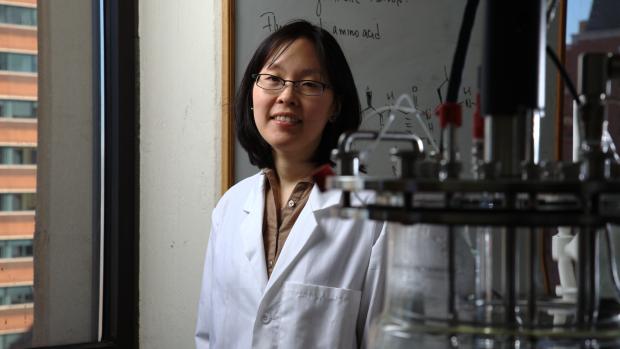NYU-Poly’s Jin Kim Montclare Awarded DURIP Grant

Jin Kim Montclare, an assistant professor in the department of Chemical and Biological Sciences at the Polytechnic Institute of New York University (NYU-Poly), is the recent recipient of a grant from the Defense University Research Instrumentation Program (DURIP), a highly competitive award that supports university-level research. The grants allow institutions of higher learning to acquire the lab instrumentation necessary to carry out cutting-edge research for the Department of Defense (DoD).
In 2005, Montclare established the Protein Engineering and Molecular Design Laboratory at NYU-Poly, where, for the past five years, her lab has been involved in generating protein-derived biomaterials. Her research group works with these proteins to template inorganic nanocrystals—like those found in magnetotactic bacteria, a group that orients along the magnetic field lines of the Earth—in a way that allows them to generate functional hybrid bionanomaterials that can be used for magnetic data storage, nanodevices, catalysis and biomedical applications.
The $170,000 grant supports an instrumentation system that will build upon existing laboratory equipment. Inspired by nature’s approach to biomaterial synthesis, Montclare’s lab plans to employ a bottom-up assembly of helical proteins—the most common type of structured proteins—to fabricate defined fibers that are robust and stable. The system will serve to enhance the capabilities for isolating hybrid protein-inorganic nanomaterials synthesized from bacteria.
The system will also support DoD research in engineering highly-stable and active artificial proteins based on phosphotriesterase (PTE) capable of breaking apart warfare or toxic neural agents.
Montclare says, “Importantly, the system will expose graduate and undergraduate students to hybrid inorganic/organic biomaterials synthesis, purification and characterization using state of the art equipment and techniques.”
The Polytechnic Institute of NYU provides a uniquely interactive environment for research and education in the sciences and engineering. The new equipment will be in effect this summer.




